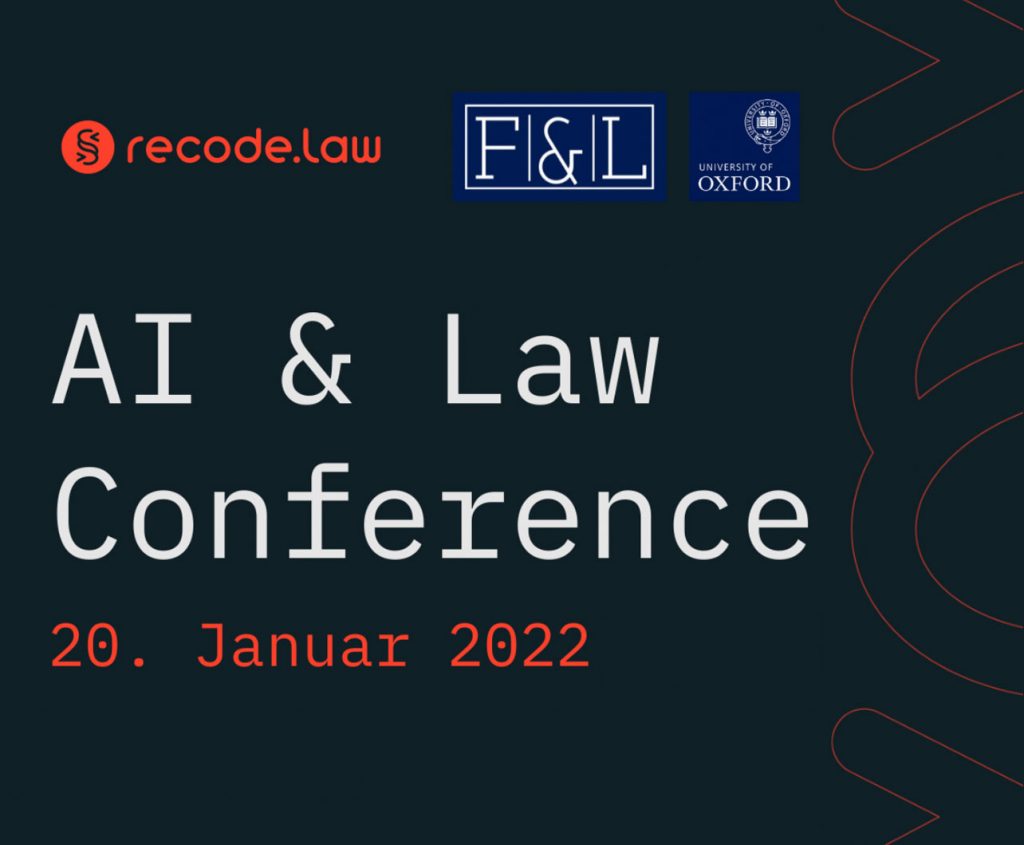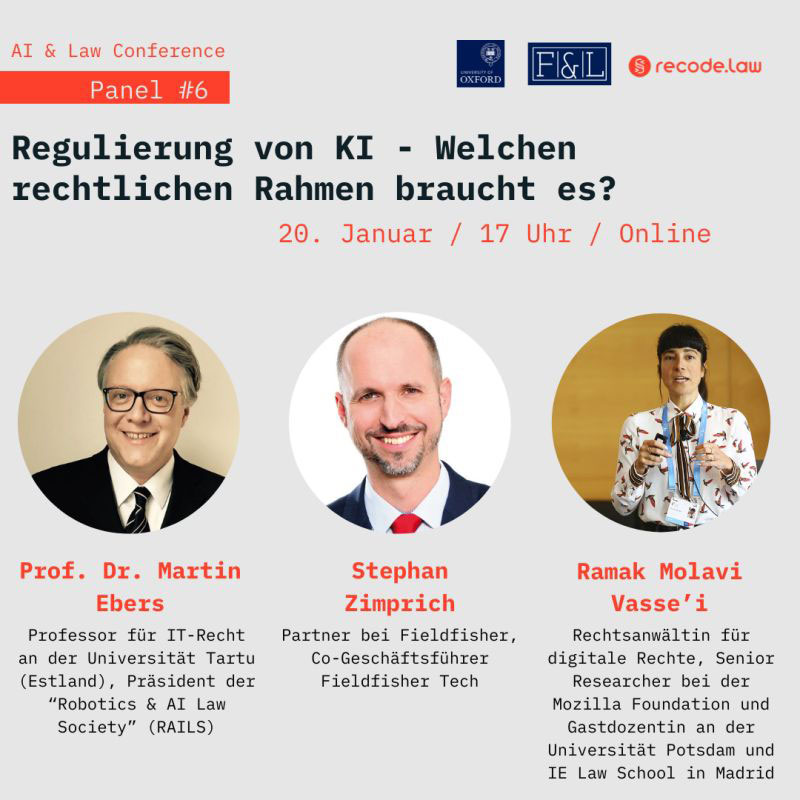
After artificial intelligence has increasingly moved into the public discourse in recent years, it is now also increasingly the subject of scientific and practice-relevant debates within the legal industry. With the AI & Law Conference, recode.law would like to offer an international platform that takes a closer look at the interface of AI and law.
The conference will be characterized by an interdisciplinary exchange of experts from computer science and law as well as other disciplines such as philosophy, behavioral economics and business administration.
Through panel discussions and keynote speeches, the organizers aim to converse about the potential of machine learning models in the application area of law and provide a space for debates.
For this purpose, recode.law and the Oxford Fintech & Legaltech Society have selected six topics that they want to discuss in detail:
- Technical foundations of AI (German)
The conference will start with a talk by Dr. Aljoscha Burchardt from the German Research Institute for Artificial Intelligence (DFKI), who will introduce the audience to the technical basics of artificial intelligence. This will be of particular interest to those who have not previously studied AI in depth and is intended to provide basic knowledge for the panels that follow. - Natural Language Processing (NLP) & Law (English)
Subsequently, the NLP & Law panel will address the use of Natural Language Processing (NLP) in the field of law. Law and its application are primarily characterized by language. For example, analyzing a contract for risky clauses requires a high level of language understanding. Thus, processing language is a central element of AI applications in the field of law. - Prediction (German)
Prediction is another sub-discipline in the broad application field of AI methods. It deals with the prediction of decisions or events based on historical data. In the legal context, the field of application is conceivably wide. Studies dealing with the prediction of sentencing decisions have attracted the most media attention. In this panel, the audience will learn how far we are from fully automated prediction of legal decisions. - Law as an ecosystem (English)
This panel will address the questions of how AI is currently being used in law (with a focus on the legal profession) and what the legal sector can learn from other industries as an ecosystem for AI. Various actors using AI in law will talk about the topic and compare the status quo with AI use cases in other industries. - Interdisciplinary aspects (English)
In the interdisciplinary panel, the organizers aim to convey an understanding of what determines (and should determine) the implementation of AI in law, using philosophy, behavioral economics, and business administration. The goals to which AI research currently aspires, as well as the importance of “framing” and robust processes in implementing AI solutions will be discussed. - Regulation of AI (German)
The conference will conclude with a panel on the regulation of AI. Together with a broad spectrum of representatives from politics, business and law, the audience will explore the question of how such a forward-looking disruptive technology can be regulated to a meaningful extent to minimize any risks without restricting development and innovation and thus weakening the competitiveness of European AI-enterprizes. For this purpose, it will be dealt with the draft regulation presented by the European Commission.
Discussants will be Dr. Aljoscha Burchardt (German Research Institute for Artificial Intelligence), Ludwig Bull (CEO, CourtCorrect), Joel Niklaus (Research Center for Digital Sustainability, University of Bern), Ilias Chalkidis (NLP Researcher, University of Copenhagen), Anna Gründler (Research Assistant, Chair of Business Administration, University of Dusseldorf), Ravit Dotan (Research Center for Philosophy of Science, UC Berkeley), Ramak Molavi (Senior Researcher AI Transparency at Mozilla) and Martin Ebers (Professor of IT Law, University of Tartu) and other exciting panelists.

